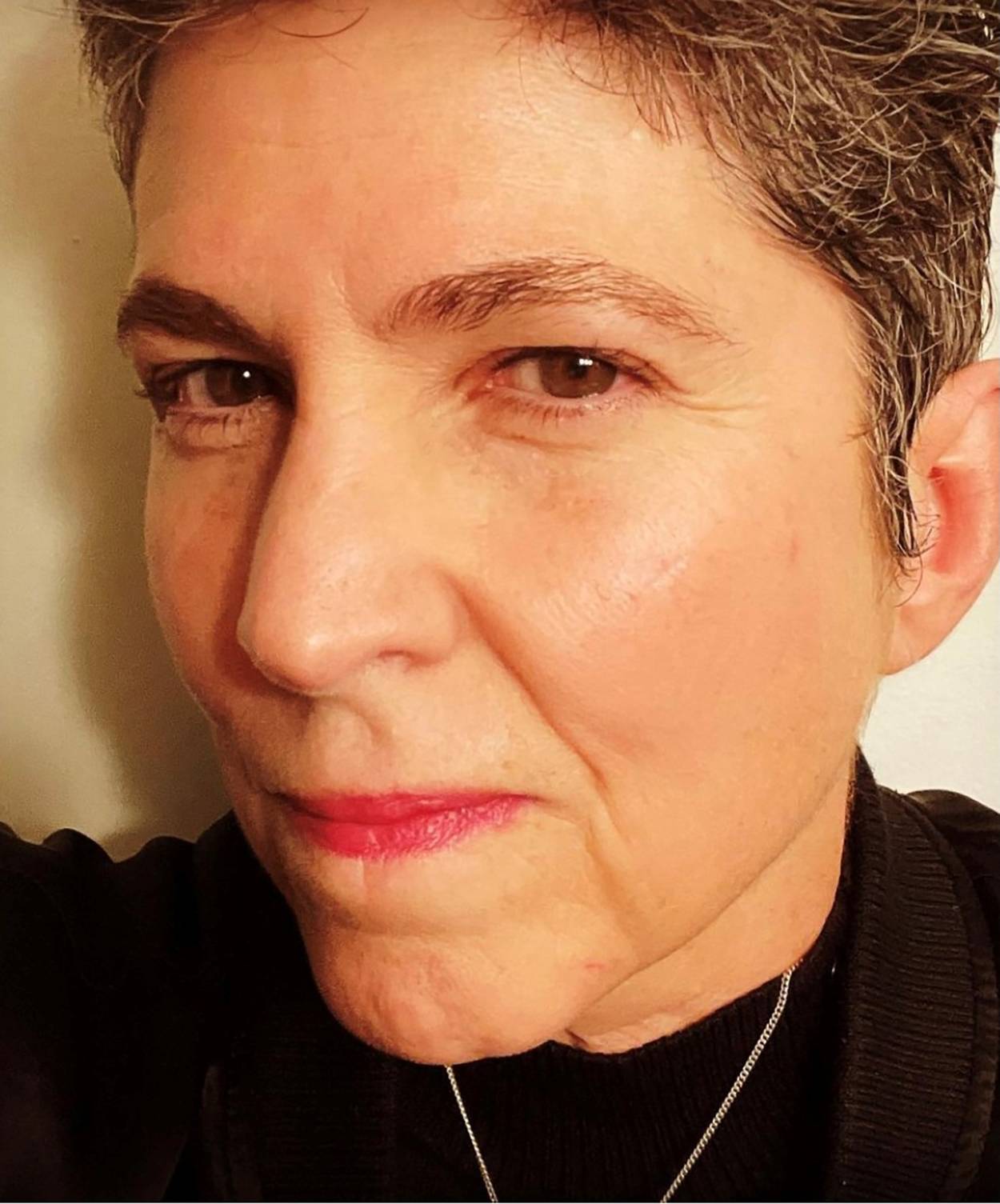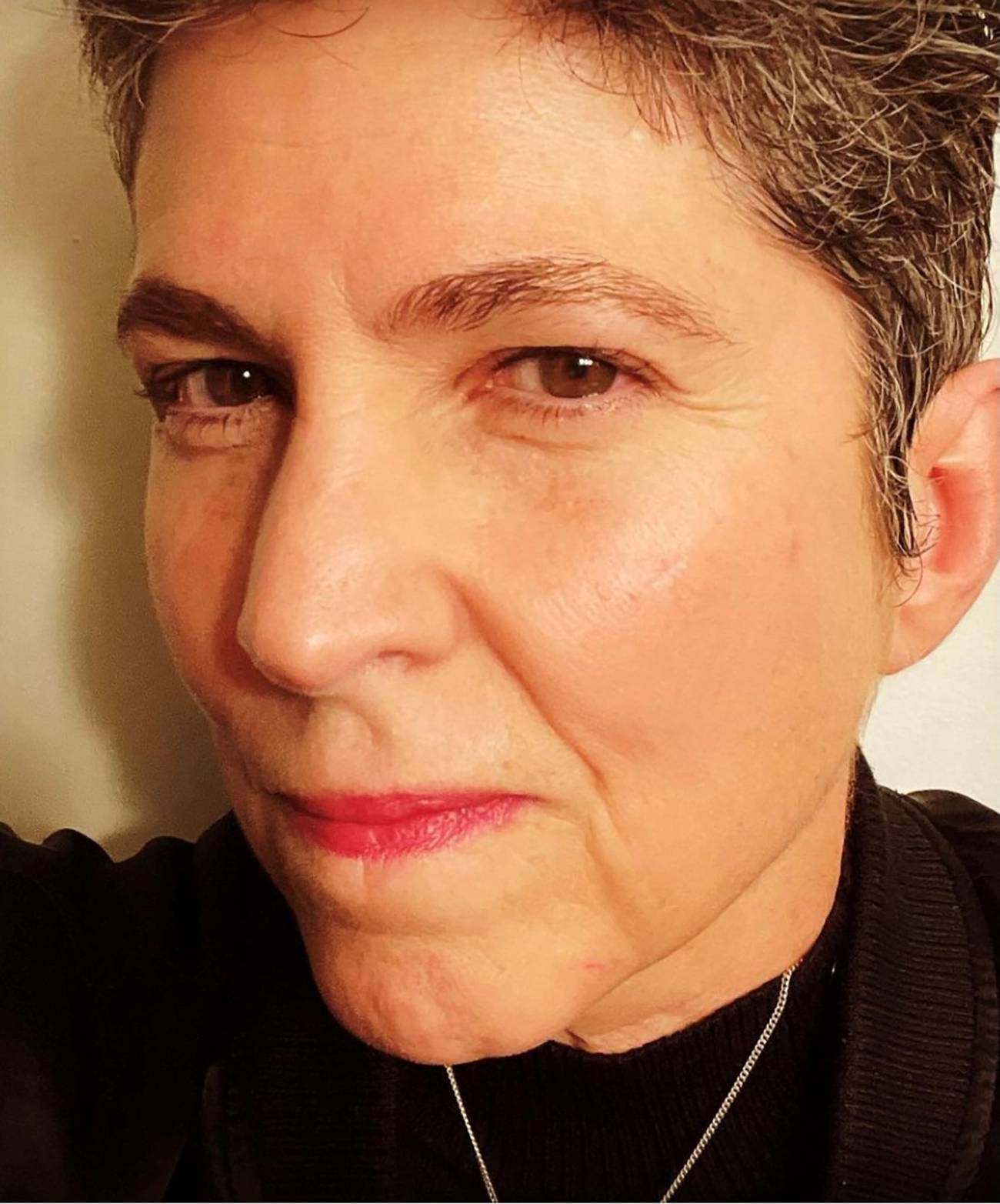An Accusatory Prayer
The Sephardic Cuban poet Achy Obejas offers a bold, humanizing reinterpretation of traditional prayers




The opening lines of Achy Obejas’ new poetry collection, Boomerang/Bumerán: Poetry/Poesía, are both powerful and seemingly impossible:
I and I alone choose to be born on this island,
to this family, on this day
Surely, no one can choose the circumstances of their birth. And yet, for a poet, the act of being born refers, above all, to being born as a poet and as the subject of one’s own poetic endeavor. For Obejas, to “choose” her circumstances is to choose to write about them, to present a book that embodies her voice and experience as that of a Cuban American writer-poet-translator. This is why the book is bilingual, with each poem appearing in both English and Spanish. Additionally, Boomerang/Bumerán is an experiment in writing about gender: “I wanted to make the text as gender-free as reasonably possible,” Obejas writes in the introductory note, also pointing out how different the project feels in English than it does in Spanish. This collection also reflects Obejas’ continued encounter with Judaism. Nearly two decades ago, while exploring her family’s connection to Sephardic Jews and the Anusim (Jews who were forced to convert to Christianity by the Spanish Inquisition), Obejas masterfully wove Sephardic Cuban histories in her terrific novel Days of Awe. In this collection, the two poems you will find below powerful engage with Jewish liturgy.
“Kol Nidrei” is a bold reinterpretation of the opening prayer of Yom Kippur. In a way, it is also a return to the prayer’s origins: According to many, the prayer’s renunciation of the vows was meant to symbolically annul conversions of the Jews to Christianity and Islam. In Obejas’ rendition, however, the vows are those imposed on women, today, in various unjust circumstances. I must admit that despite its cantorial grandeur, I never thought of the original Kol Nidrei as a prayer, but rather as a set of arcane, legalistic statements. And yet, after reading Obejas’ powerful reimagining, it occurs to me that a powerful renunciation of unjust rules, laws, and systems, can be an accusatory liturgical moment of hope for change and redemption.
The second poem, “In Response to the Murder of Eleven Jews, Including a Ninety-Seven Year-Old Said to Be a Holocaust Survivor, Who Wasn’t,” weaves the choreography of the Amidah, the silent prayer, into a contemplation of the mundane details about the lives of the victims of the Pittsburgh synagogue shooting. It is a powerful tribute to those who were killed mid-prayer, and it is also an attempt to humanize them: to take their story away from the headline-bound narration of the tragedy and into deeply human, grieving, prayerful meditation. The audio recording of this poem in both English and Spanish can be heard via poets.org.
Kol Nidrei
With the consent of no one, we pray among the dykes, the miscreants, the homeless, the enraged, the jobless, the women who’ve had abortions, the women who’ve had to give up their children, the women who raise their children, the women who raise other women’s children,
the deported, the refugees, the exiled, the stateless, the sick, the women who take care of the sick, the women who believe in a higher power and those who don’t, who howl at the moon and those who just howl, those who bleed and those who don’t, the drug addicts and the love addicts, the disabled, the women who take it and the women who hit back and the women who run, the women who were orphaned, the women who partnered and the women alone (by choice or circumstance), the women who stayed, the women who are here now . . . All vows, all things we’ve forbidden ourselves, the oaths we’ve sworn, the laws we’ve reluctantly agreed to, vows made in doubt, vows coerced. All we promised and dedicated and forbade ourselves; from now on—let us be released.
Who told us we were naked?
Who told us shame is shame?
Eat, eat of the fruit, sisters.
Kol Nidrei
Sin le consentimiento de nadie, rezamos entre las tortilleras, las malhechoras, las sin techo, las enfurecidas, las desempleadas, las que abortan, las que renuncian a sus hijes, las que sí les crían, las que crían a les que parieron otras, las deportadas, las refugiadas, las exiliadas, las apátridas, las enfermas, las que cuidan a las enfermas, las que creen en une poder superior y las que no, las que aúllan a le luna y a las que sólo aúllan, las que sangran y las que no, las drogadictas y las adictas a le amor, las discapacitadas, las que aguantan y las que devuelven le golpe, las que huyen, las que quedaron huérfanas, las que se asociaron y las que están solas (por elección o circunstancia). Las mujeres que se quedaron y las que están aquí ahora . . . Todes les votos que hemos hecho y todes les cosas que nos hemos prohibide: les juramentos, les leyes que aceptamos de mala gana, les votos heches con dudas y les forzados. Tode le que nos prometimos, dedicamos y negamos; de ahora en adelante, seamos liberadas.
¿Quién nos dijo que estábamos desnudas?
¿Quién nos dijo que la vergüenza es vergüenza?
Coman, coman de la fruta, hermanas.
In Response to the Murder of Eleven Jews, Including a Ninety-Seven Year-Old Said to Be a Holocaust Survivor, Who Wasn’t
if they preferred tea with honey
(take a step back)
if they watched police procedurals
if their ankle throbbed
or their hands swelled
and they didn’t complain
or they did
(take another step back)
if they missed being in love
with its anticipations
a hand caressing the small of their back
(take a third step)
or maybe they’d forgotten
held it like a souvenir postcard
from long ago
colors faded
if they had children and
their children had children and
their children’s children had children
or maybe they hadn’t forgotten
(bend knees)
but found instead a love deeper than love
fathomless and devout
if they were simply going through the motions
which now gave them a warm and glowing contentment
that came to them like breath
(bow)
if they recalled the headlines
from those other times
(bend knees)
the hours volunteering at a soup kitchen
writing pen pals in uniform
(bow)
if they remembered fear
or if they’d grown immune
so saturated with it
it had transformed into a fourth prayer
if they understood what happened when it happened
if their hearing caught the stranger’s cry
if they pondered for an instant
if they were dreaming or confused
(fall down)
the wind blows, the rain falls
the sick are healed
the bound released
gather exiles from the four corners of the earth
unto the land
reassemble
here
body upon body
En respuesta a le asesinato de once judíes, incluyendio a une de noventa y siete años que se decía era une sobreviviente de le Holocausto, pero no
si elle prefería le té con miel
(de une paso atrás)
si veía les programas policiaques
si le dolía le tobillo
o si sus manos se les hinchaban
y elle no se quejaba
o si sí
(de otre paso atrás)
si extrañaba estar enamorade
con sus anticipaciones
une mano acariciando le parte baje de su espalda
(de une tercer paso)
o tal vez se le había olvidado
y sostuvo le memoria como une postal
de hace mucho tiempo
les colores desvanecides
si tuvo hijes y
si sus hijes tuvieron hijes y
les hijes de sus hijes tuvieron hijes
o quizá ya no se acordaba
(doble les rodillas)
y en vez encontró une amor más profunde que le amor
insondable y devote
si simplemente pasaba por les movimientos
que ahora le daban une cálide y brillante satisfacción
que le vino como aliento
(reverencie)
si recordaba les titulares
de aquelles otres tiempos
(doble les rodillas)
les horas de voluntarie en une comedor de beneficencia
escribiéndole cartas a les amigues militares
(reverencie)
si recordaba le miedo
o si se volvió inmune
tan saturade que
le había transformade en une cuarte oración
si comprendió le que sucedió cuando sucedió
si su oído atrapó le grito de le extrañe
si se preguntó por une instante
si estaba soñando o confundide
(cáigase)
sopla le viento, cae le lluvia
les enfermes se curan
les atades son liberades
reúna exiliades de todes les rincones
para tomar le tierra
junteles
aquí
cuerpo sobre cuerpo
Jake Marmer is Tablet’s poetry critic. He is the author of Cosmic Diaspora (2020), The Neighbor Out of Sound (2018) and Jazz Talmud (2012). He has also released two jazz-klezmer-poetry records: Purple Tentacles of Thought and Desire (2020, with Cosmic Diaspora Trio), and Hermeneutic Stomp (2013).